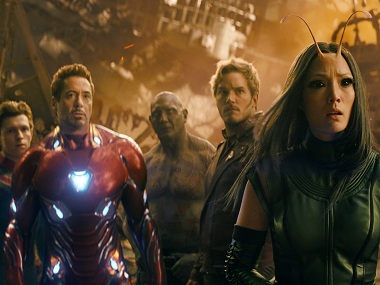Guardians of the Galaxy Vol. 3 and the sequels to Spider-Man: Homecoming, and Black Panther are all on their way. But you must all know by now that Avengers: Infinity War did not end particularly well for any of them with Star-Lord, Drax the Destroyer, Mantis, Groot, Peter Parker and T’Challa all succumbing to Thanos’
snappening . So, many questioned the directors, Russo brothers, on why they chose to kill off characters that everyone knew had films coming up. The timeline has drawn a lot of criticism from even the most loyal MCU fans but as Anthony Russo assures us sequels don’t necessarily mean they’ll be coming back to life.
_Also read — Avengers 4 CineEurope footage description leaked; Captain Marvel confirmed as new face and leader of MCU_ [caption id=“attachment_4451003” align=“alignnone” width=“825”] A still from Avengers: Infinity War. Marvel Studios[/caption] Speaking with the Huffington Post, Anthony Russo said: “Here’s the thing, I think it’s important to remember anything is possible in the MCU. Just because there’s a sequel on the books doesn’t mean … people become accustomed to time moving linearly in the MCU. That doesn’t necessarily have to be the case. There’s a lot of very inventive ways of where the story can go from here.” Brother Joe Russo confirmed, noting, “There’s four years between Guardians 2 and Infinity War. That’s a long time, and a lot of Guardians stories to tell. Again, as Anthony said, don’t expect everything to move forward in a linear fashion in the Marvel universe.” Does that mean all the sequels will be set before the catastrophic events of Infinity War? Unlikely. And don’t forget Ant-Man and the Wasp ’s introduction of the Quantum Realm further changes the equation and possibilites.
_Also read — Avengers: Infinity War crosses $2 billion in global box office, becomes second fastest to cross milestone after Avatar_ So, for now, all we can do is wait and watch. Avengers 4 comes out in theatres on 3 May next year.
Avengers: Infinity War directors defend the film’s ending against its biggest and most common criticism.
Advertisement
End of Article


)
)
)
)
)
)
)
)
)



